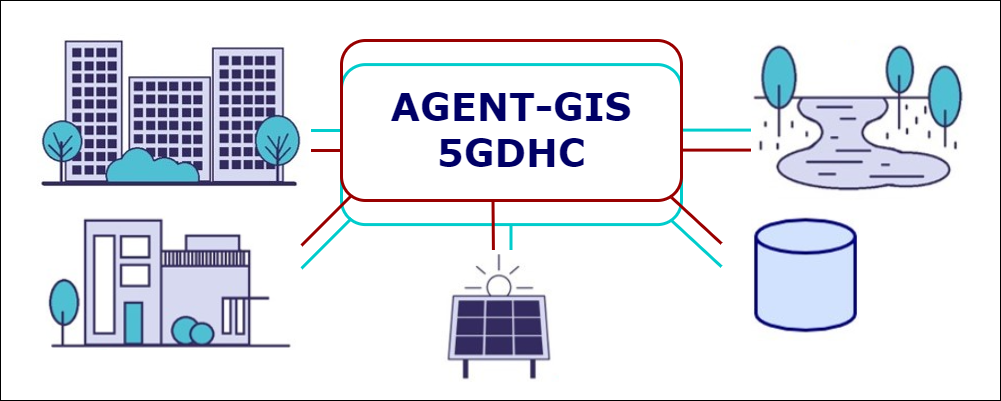
About Agent-GIS-5GDHC
The 5th Generation District Heating and Cooling (5GDHC) network has great advantages in integration of low temperature resource, bi-directional operation, decentralized energy flows, and possible energy sharing. However, there are…
The 5th Generation District Heating and Cooling (5GDHC) network has great advantages in integration of low temperature resource, bi-directional operation, decentralized energy flows, and possible energy sharing. However, there are research gaps, related to this technology: the lack of a simulation platform for rapid prototyping in different regions, the unknown technical and economic performance in various conditions, and the lack of feasibility study for early opportunities and potential barriers. In the frame of this project, a simulation platform will be developed using agent-based modelling and GIS to evaluate the technical and economic performance of the 5GDHC technology and study possible applications of the 5GDHC in the Baltic and Nordic regions.
It will adopt an integrated multidisciplinary approach by combining technical and economic simulations, technology database, digital-GIS resource mapping, business model optimization and policy-orientated feasibility study for dissemination/replication.

The database of available resources will be developed by means of collecting data from a large number of geolocations. A digital numerical mapping approach will be used based on heat maps and QGIS tool to visualize the technical performance of various indicators at simulated locations. A simulation platform, which integrates both the agent-based modelling and GIS, will be further developed based on Python and Urban Modelling Interface tool. Three local market business models for 5GDHC at community level will be designed, which will be optimized based on Nash-type game theory and non-linear objective function. A ‘reverse techno-economic’ simulation will be used to find the ‘break-even points’ for investment. The possible impacts of policy interventions will be investigated through scenario/sensitivity simulations to explore barriers and opportunities for different stakeholders in different regions.
Through the investigation at diverse cultural and geographical contexts in Baltic-Nordic regions, this project will contribute significantly in the increase of flexibility and resilience of urban energy systems and promote new local energy market.
This project will strengthen the Baltic-Nordic knowledge in the areas of energy-efficient buildings and energy systems. This will not only promote best technical and economic solution, but also develop strategies for higher education of next-generation researchers in these regions to tackle future challenges and developments.

